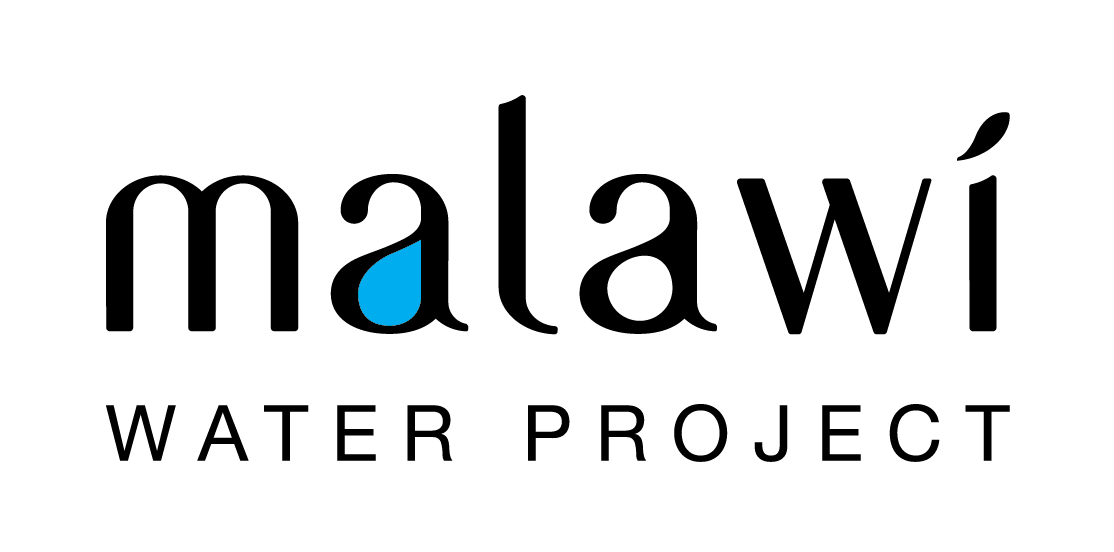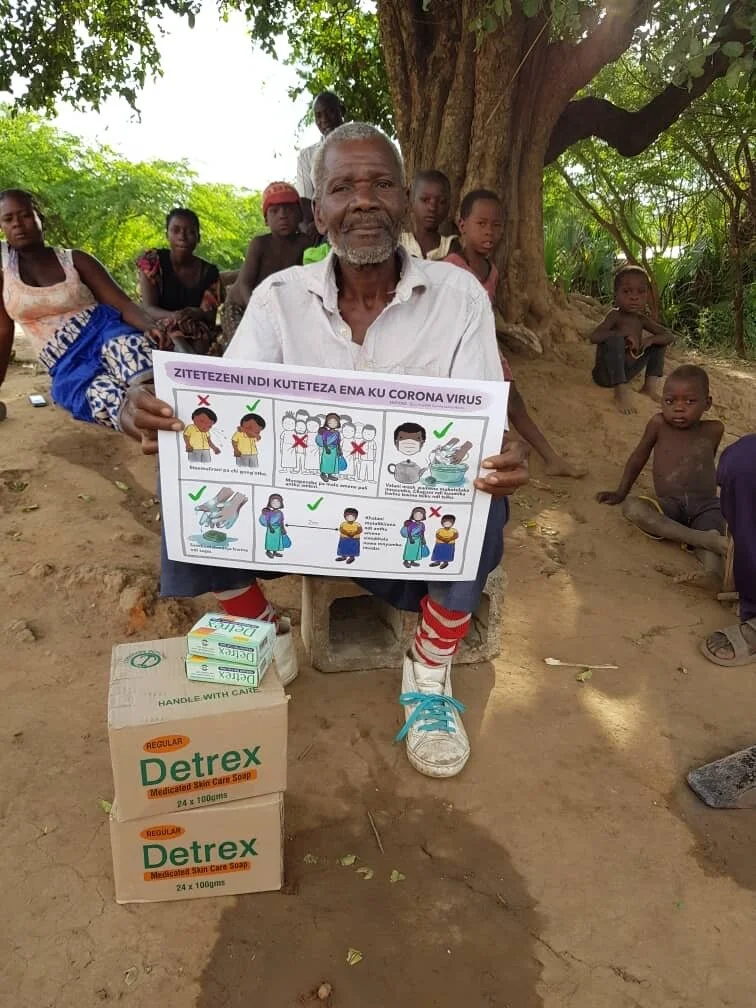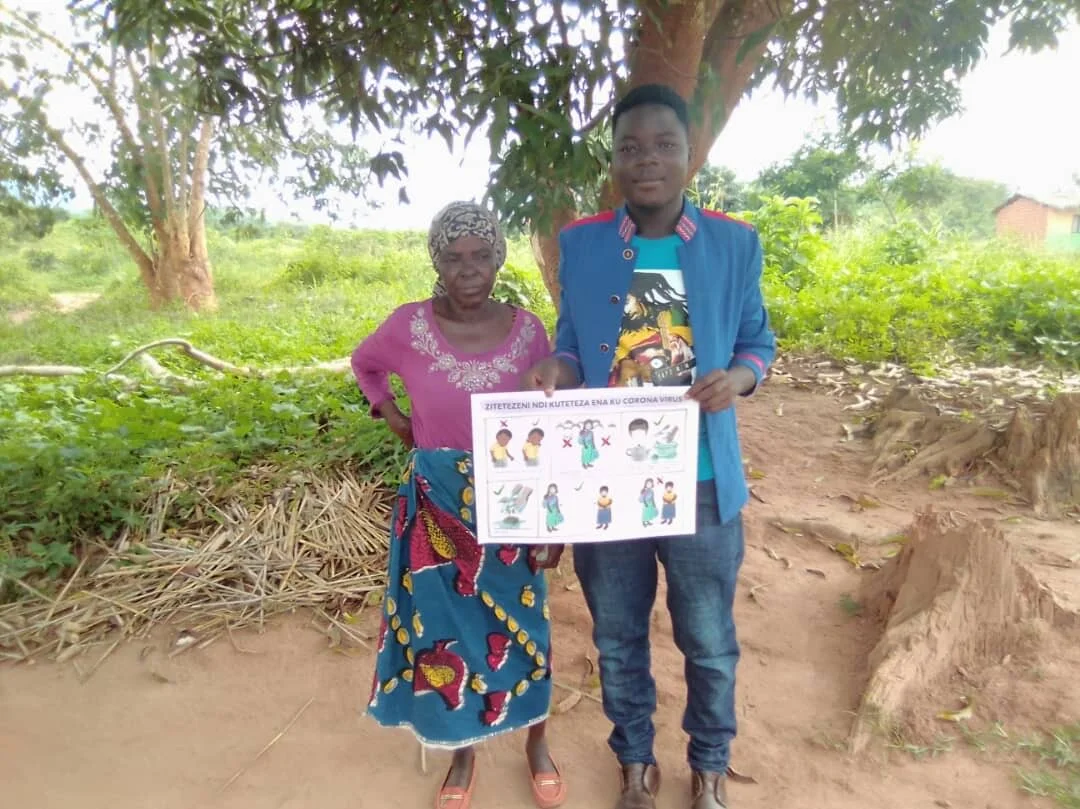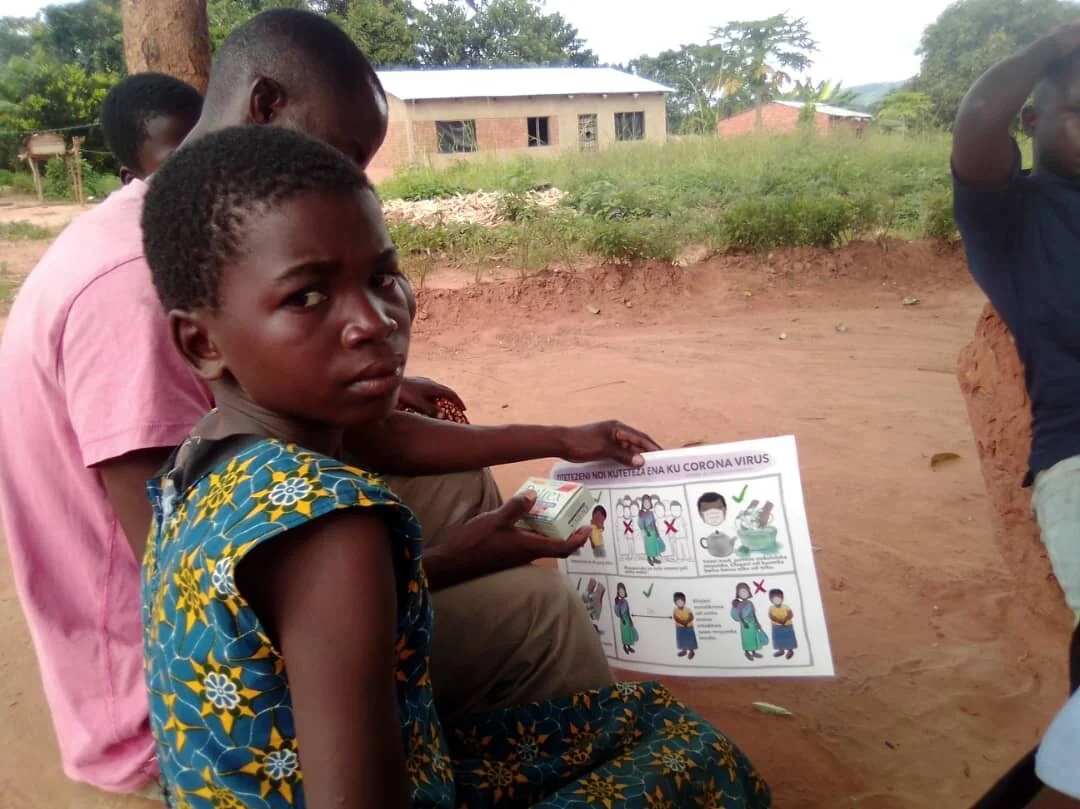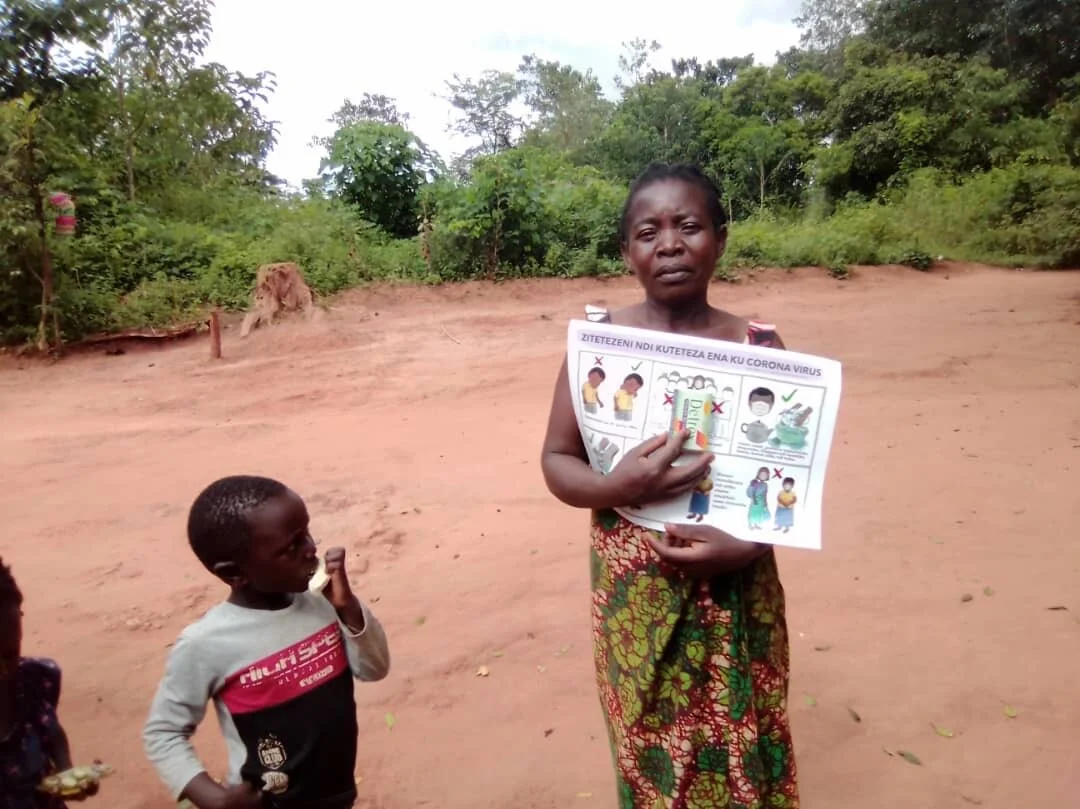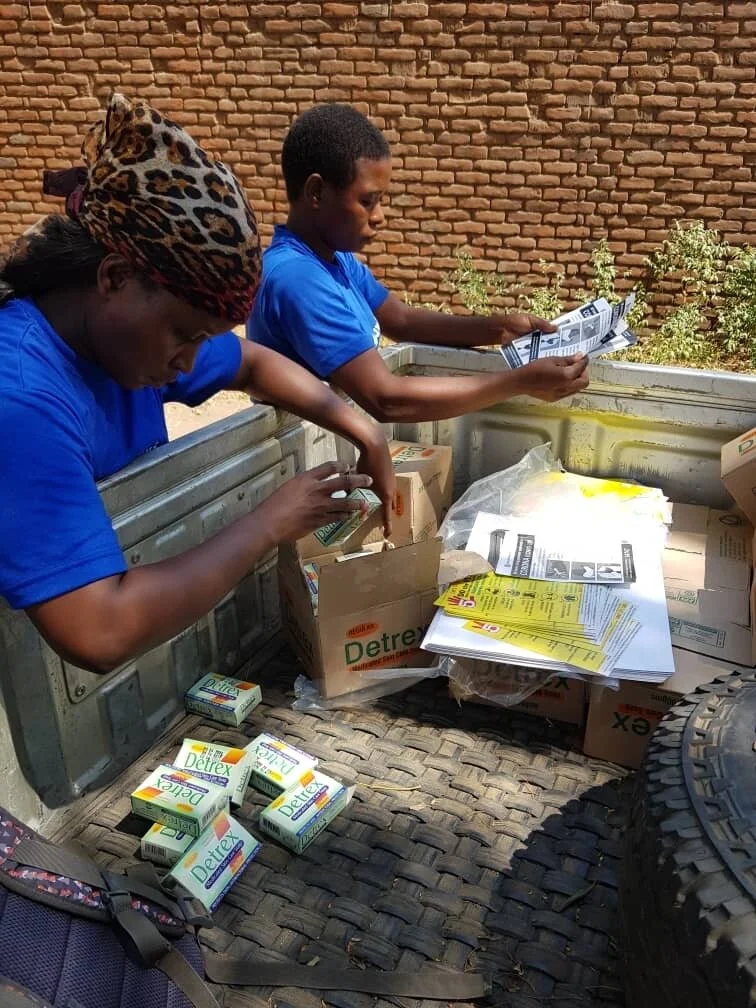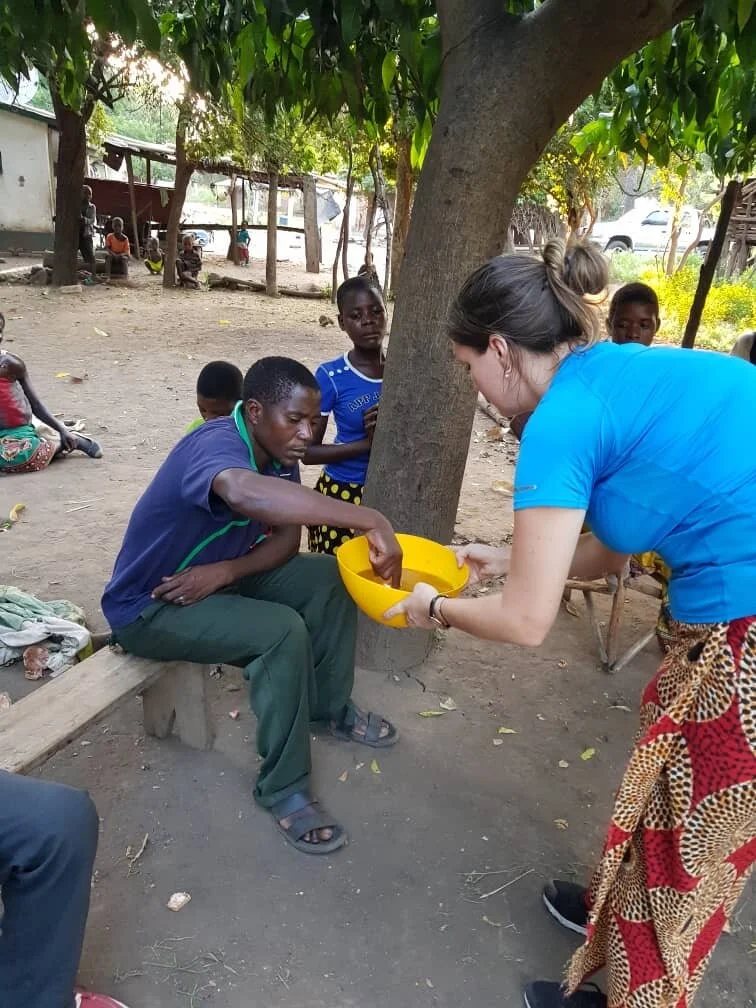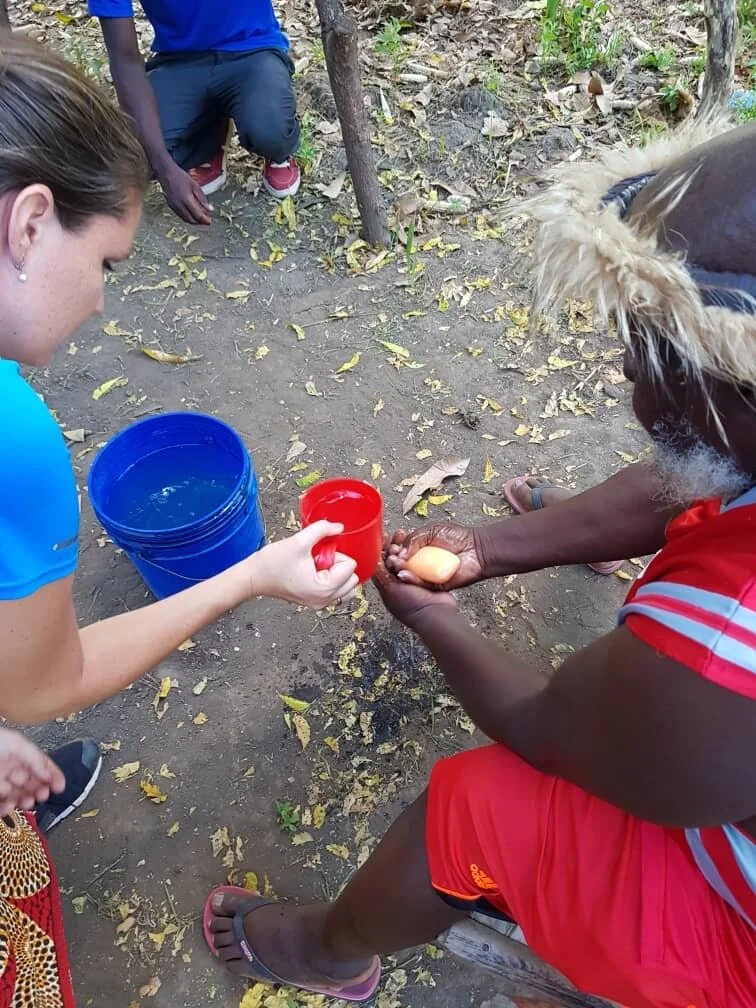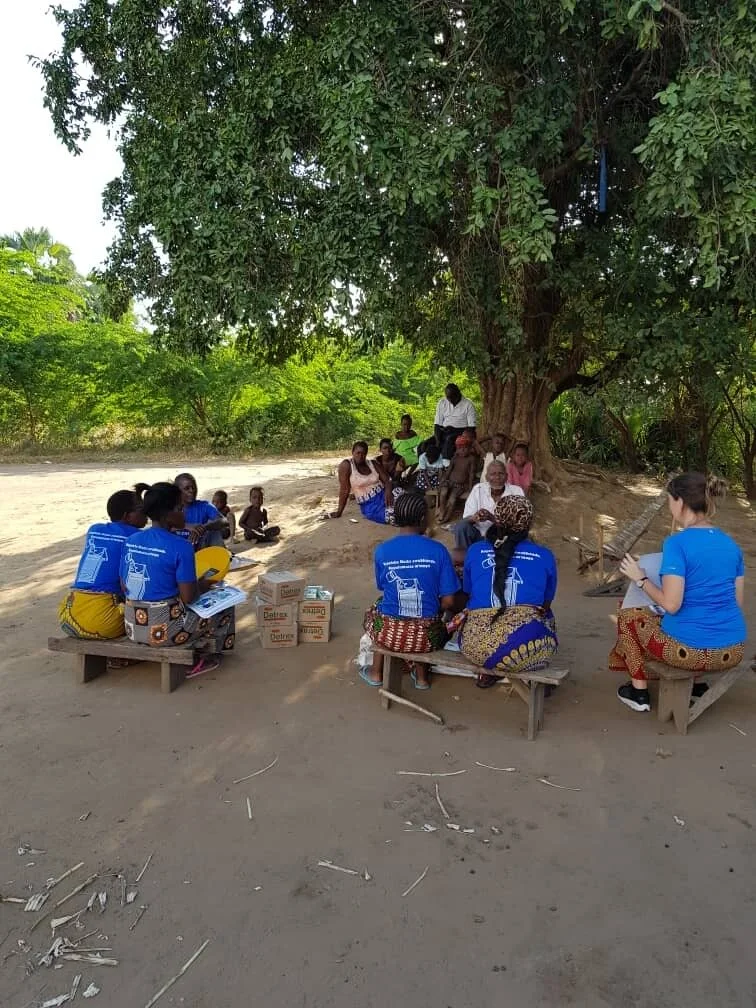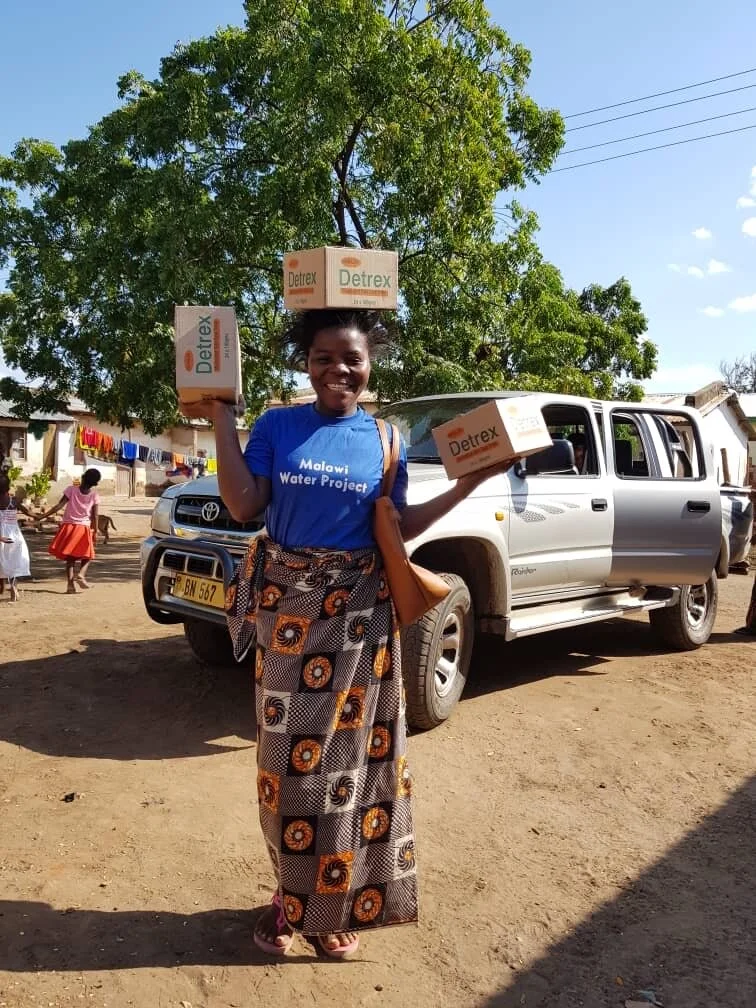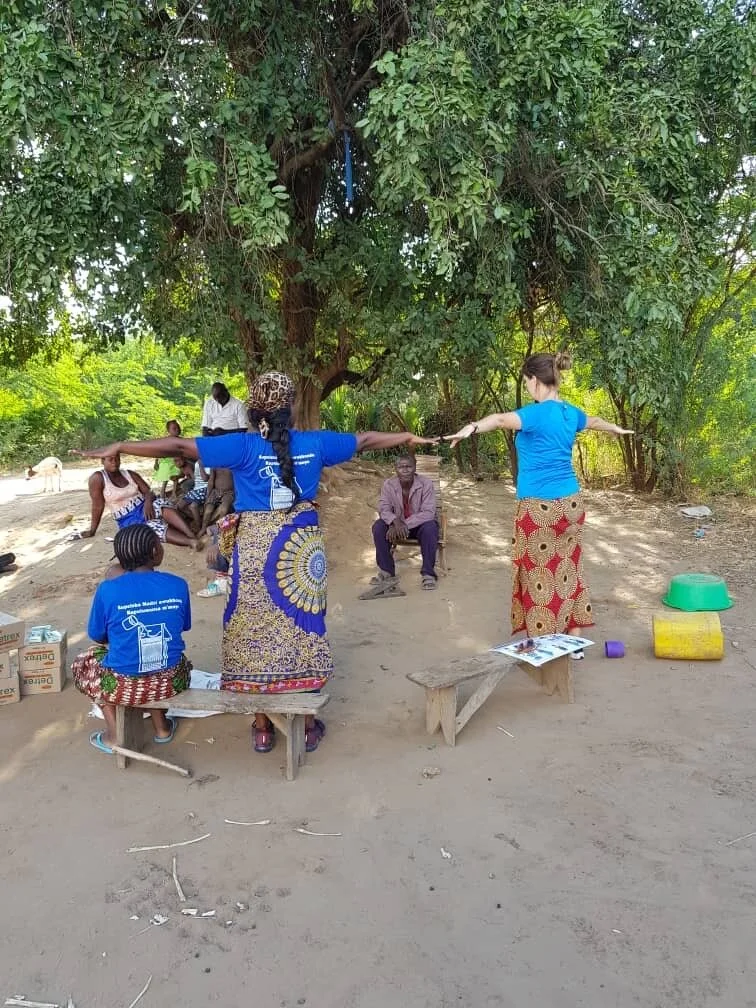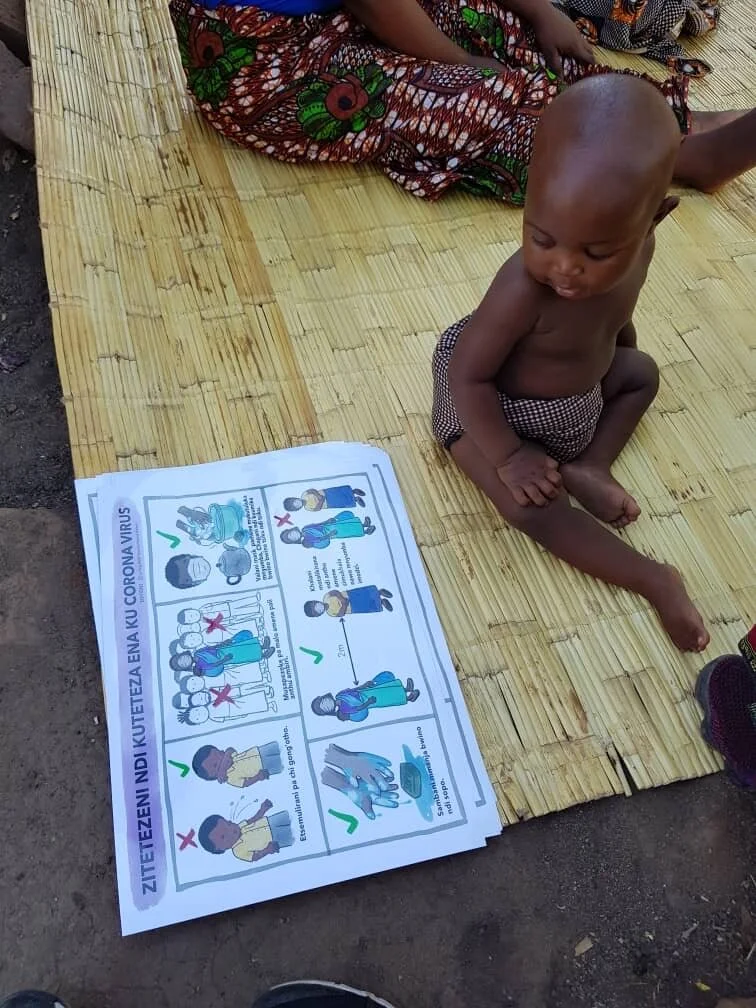Our Response to COVID-19
It is a very stressful time for the people of Malawi. In a country that is one of the poorest in the world, there is a great deal of fear among the people in rural communities, especially the elderly. If someone becomes extremely ill, there will not be access to a hospital with oxygen or a ventilator. In order to try to alleviate some of the fear, the project teams (North and South) went to communities to dispel the many rumours that are going around and disseminate accurate information, along with hand soap. It was a long day for the teams, who worked hard to reach as many villages as they could to deliver soap graciously donated by our partner, Formidable Joy, and laminated posters with pictures and simple instructions in Chichewa (the local language) developed by Tiyamiki Sewing Malawi
Village Chief receiving posters and soap for his community
The teams, with the help of our
community volunteers
, managed to distribute
200 posters
and
1560 bars of soap
among
25 communities
just before the planned country lock down that was to occur on Saturday, April 18th. The volunteers, now staying home, will continue to emphasize
hand washing, proper hygiene and social distancing
in their villages. The volunteers made sure that large groups did not attend the demonstrations, in order to emphasize that villages should not hold large gatherings during this pandemic.
The type of anti-bacterial soap distributed was particularly appreciated. Dausi, one of our staff, reported that his child no longer has skin rashes. They have cleared up after using the soap.
Sarah (our
volunteer Country Director
) and the team spoke about the need for
hand washing
and demonstrated how germs can cling to hands by using a bowl of water with pepper sprinkled on top. When the Chief put his finger in the water the pepper clung to his finger. After washing his hands with soap, he put his finger in the water and the pepper was repelled. It is a visual way to discuss germs and the importance of hand washing. Everyone who saw it appreciated the demonstration.
The team in the South faced
many questions
from the villagers, primarily about how best they could help the elderly where there is essentially
no access to hospitals
. One of the questions was about
Traditional African medicine
. One of our volunteers admitted that he and his family never go to the hospital and they use Traditional medicine instead. Sarah thought about the question and felt that as long as the medicine isn't harming their bodies or anyone else, then as far as she was concerned, they need to do what they feel is best to keep their bodies healthy. Traditional African medicine has been used for generations.
A Village Chief participating in a hand washing demonstration
Everyone was interested in learning how to protect themselves and their families from the virus.
Staff distributing hand soap
Social distancing
was introduced; however, it is going to be very difficult since the dwellings are small, located close together, and families are large. The team did discuss how important it is to try to keep 2 meters apart, emphasizing that if anyone feels sick with a fever or if they have a cough, they need to stay away from others and wash their hands frequently.
To keep our team members safe and to help with the containment of the virus, we have
closed both
Biosand Filter Production facilities
(factories). We have guards staying at the factories to keep them protected from potential intruders. We have just learned that there were demonstrations throughout the country protesting the government mandated
lock down
. The vendors who would be forced to close their stalls during the lock down are protesting that they would rather have the virus than have their families starve. They cannot feed their families without the income from their stalls and, of course, there is no government assistance for small businesses or anyone else. At this moment, the government has decided
not
to implement the lock down.
Doctors and nurses
at the government run hospital
in Blantyre went on
strike
because they did not have the
personal
protective equipment
that they needed. People needing medical care were being turned away from the hospital. There is a large maternity ward and
expectant moms
were not getting food because families were not allowed to go into the hospital to give food to their loved ones. There is a concern that things will get worse as time goes on since there will continue to be a shortage of protective wear.
Sarah had planned to stay in Malawi during the pandemic but has now decided to return to Canada. Although no commercial flights are operating, the US Embassy has arranged a flight for those who wish to return. There was room on the flight for Sarah and her daughter, Mayamiko, so they were set to fly yesterday to Canada via Washington.
We will continue to do what we can to try and help where we are needed so that people like little
Yamikani
, her
parents
and
grandparents
will
stay safe.
